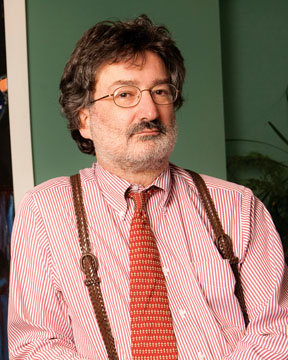Joe Groia and the Law Society of Upper Canada remain at loggerheads as both sides are challenging an appeal panel ruling that was partly favourable to the Toronto lawyer in the long-running civility case.

Last week, the law society filed a cross-appeal at the Divisional Court seeking to reinstate the LSUC hearing panel’s earlier decisions that imposed a two-month suspension and a $250,000 costs order on Groia. It was in response to Groia’s appeal filed with the Divisional Court earlier this month.
For his part, Groia is seeking to dismiss the misconduct case against him related to incivility during his defence of Bre-X Minerals Ltd. geologist John Felderhof or, in the alternative, send the matter to a hearing before a different hearing panel. He’s also looking to quash the costs order, since reduced to $200,000 by the appeal panel, as well as the one-month suspension it ordered.
“The appeal panel’s decision endorses the LSUC’s unprecedented and dangerous disciplinary proceedings against the lawyer,” states the Divisional Court notice of appeal filed by Groia’s counsel, Earl Cherniak and Jasmine Akbarali of Lerners LLP.
“These proceedings were commenced by an ‘investigation’ of the lawyer’s conduct of the defence of his client in an ongoing trial. Charges against the lawyer were then brought before the hearing panel in the absence of any independent assessment or review by the LSUC of the conduct of the lawyer during the trial, in the absence of a referral to the LSUC by the trial judge or any of the judges involved in the judicial review of the Felderhof trial, and in the absence of a complaint by opposing counsel, the parties, or any witness in the Felderhof trial (the ‘judicial independence grounds’).”
Much of legal arguments have centred on
obiter comments by the Ontario Court of Appeal that were critical of Groia’s actions in the Felderhof case. They arose in proceedings brought by the Ontario Securities Commission to have the trial judge, Justice Peter Hryn of the Ontario Court of Justice, removed from the matter because of unfavourable evidentiary rulings and what the OSC claimed was Hryn’s failure to restrain Groia’s aggressive conduct in the case. Justice Archie Campbell of the Ontario Superior Court dismissed the OSC’s application. The OSC appealed to the Court of Appeal, which dismissed the appeal.
The latest appeal argues Groia, in engaging in the conduct criticized by the law society, was following the directions of an experienced trial judge. “The appeal panel’s decision creates an impossible standard for all trial counsel; even if a lawyer is winning a trial for his or her client, has not been criticized by the trial judge (and even if their opponent’s conduct has been so criticized), the LSUC decision now requires trial counsel to challenge or ignore rulings of the trial judge and to disagree with how the trial judge is conducting the trial, or face the prospect of a ruinous prosecution like this one (the ‘control of the courtroom grounds’).
Moreover, Groia’s latest appeal argues the appeal panel’s reasons on the one-month suspension are “arbitrary, capricious, and unsupported by the facts of the case.”
The costs order, he suggests, is “both arbitrary and punitive.”
In its cross-appeal, the LSUC argues hearing panel’s assessment in the case “was reasonable and entitled to deference before the hearing panel. The appeal panel erred in law by concluding that the reasons of the reviewing courts should be given only limited weight.”
It adds the hearing panel made no legal error in levying the two-month suspension and that the appeal panel erred in reducing the costs order.
Groia is seeking an expedited appeal, according to his notice of appeal.

 Last week, the law society filed a cross-appeal at the Divisional Court seeking to reinstate the LSUC hearing panel’s earlier decisions that imposed a two-month suspension and a $250,000 costs order on Groia. It was in response to Groia’s appeal filed with the Divisional Court earlier this month.
Last week, the law society filed a cross-appeal at the Divisional Court seeking to reinstate the LSUC hearing panel’s earlier decisions that imposed a two-month suspension and a $250,000 costs order on Groia. It was in response to Groia’s appeal filed with the Divisional Court earlier this month.